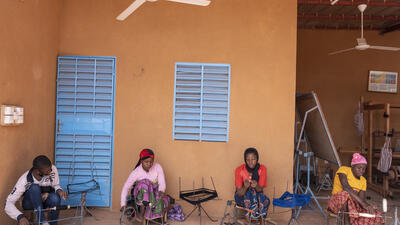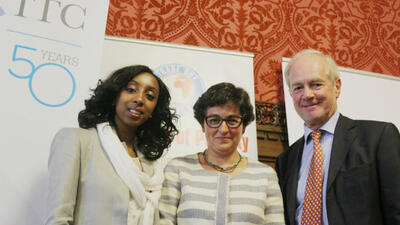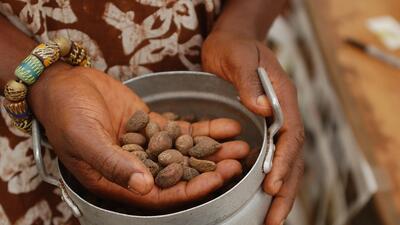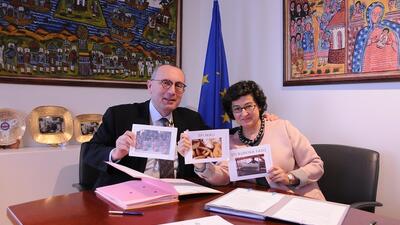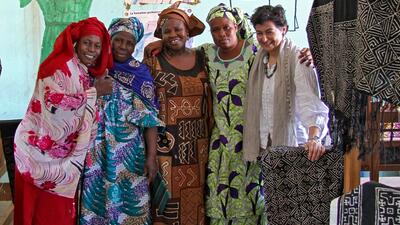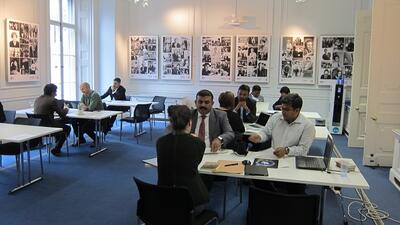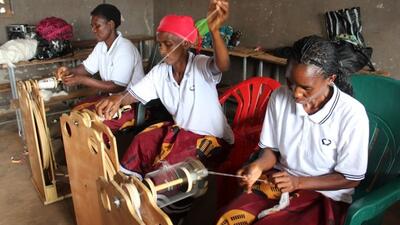


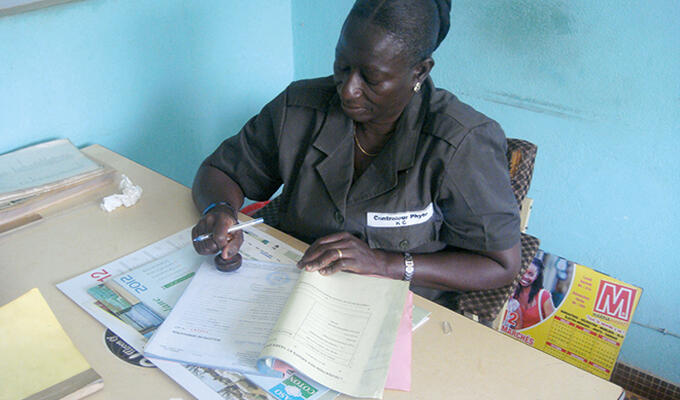
Trayendo MNA's a la luz (en)
As growth in the global economy has slowed, protectionist forces have persisted — even expanded — in the form of NTMs. Generally speaking, NTMs consist of anything that gets in the way of commerce, including administrative fees, paperwork, inspections, product certifications and standards, or even harassment and crime.
Because NTMs are so varied and affect different business sectors in different ways, they can be difficult for policymakers in developing countries to identify and measure. Without that insight, there is no foundation for action. This was the case in Burkina Faso.
“Many efforts had been made in my country since 1991 to clean up the business environment and simplify export procedures,” said Sériba Ouattara, National Coordinator for Implementation of the EIF and formerly a special adviser to the Ministry of Trade. “Despite these reforms, there were still difficulties, in particular with non-tariff measures.”
Direct from the source
In 2010, at the government’s invitation, ITC investigated the incidence of NTMs that Burkinabe companies faced at the international and regional level. Funded by the United Kingdom and Window I of the ITF, the in-depth survey of 172 companies gave small companies a chance to voice their concerns about the problems they encounter, and it threw up some surprises for local officials.
The survey revealed that the majority of Burkinabe companies — 60% — run into NTM hurdles in their normal course of business. Even more troubling, in a country where more than 90% of the population works in agriculture, was that the majority of reported NTMs involved agricultural goods. The study showed that exporters tended to face more obstacles than importers, with exporters having to deal with administrative delays in Burkina Faso as well as costly SPS certification requirements by partner countries.
“At the ministerial level, we were surprised to find that we were imposing taxes on exporters,” said Paulin Zambelongo, Counsellor of Economic Affairs at the Ministry of Trade. “Through its research, ITC enabled us to discover exactly what problems the companies had, and then it engaged with the companies in finding solutions.” Zambelongo helped write the report on ITC’s survey results.
To illustrate the problem, Zambelongo cites two examples. In 2010, an exporter complained that he had lost all his goods at the Chinese border because he simply had not known his goods required SPS certification. More recently, an exporter of sesame seeds told Zambelongo that she had been forced to absorb the cost of destroying merchandise she had already shipped, which was found to have some quality problems.
“If there had been an accredited laboratory in Burkina Faso, she would not have had this problem,” he said. “Not only did she have to buy the merchandise and pay for its transport, she then had to pay to destroy it.”
The ITC survey identified three priority actions: to rationalize SPS procedures and provide related technical assistance to exporters; to ensure transparency in export procedures and requirements; and to establish accredited laboratories that could provide certificates guaranteeing the quality of Burkina Faso’s exports.
A national approach to SPS requirements
Having established a road map for change with the NTM survey, ITC is now engaged with the government on each of the action areas. It is currently working with the Ministry of Trade to formulate a request for funds from the WTO Standards and Trade Development Facility (STDF) — a global partnership focused on building SPS capacity in developing countries — to enable a national SPS implementation in Burkina Faso.
ITC is also developing a global database on NTMs and, in an effort to demystify SPS regulations, may work with authorities to build an information portal, allowing companies to find relevant trade information and share their experiences with other companies.




